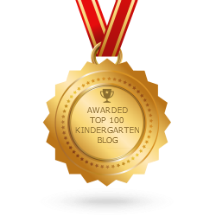FDK (Full-Day Kindergarten) is a 2 year, play-based program that gives children the best possible start to their education. The goals of FDK set out by the Ministry of Education are:
- to establish a strong foundation for the early years by providing young children with an integrated day of learning
- to provide a play-based learning environment
- to help make a smoother transition for children to Grade 1
- to improve children's prospects for success in school and in their lives beyond school
How is it Different from the Old Kindergarten?
Gone are the days of pre-made crafts, cookie-cutter activities, worksheets, and students being forced to go to a specific centre. With FDK, students will learn to take initiative in their learning and have more choices to express themselves. Students can choose which learning centre they want to go to and have the freedom to take control of their own learning. This does not mean it's a free for all for all students throughout the day. It is still a very structured environment with routines and expectations.
What is Play-Based Learning?
Play-based learning is an engaging, fun, and natural way for children to learn. Through play, children develop a strong foundation for learning in all areas, including language and mathematics.
What Does is Look Like?
Students will spend time throughout the day playing at learning centres with their classmates. However, it isn't just play.... it's purposeful play. Learning centres are designed by the teacher and ECE, who are very involved with students during play to engage students in critical thinking skills. This form of play is student-initiated. While children play, the teachers prompt students with questions/challenges to transform that play into an authentic learning experience.
What Do They Learn through Play?
Through play, students learn about themselves, their environment, and the people in the world around them. As they play, students will learn:
Concepts:
Social Skills:
Life Skills:
Through play, students learn about themselves, their environment, and the people in the world around them. As they play, students will learn:
Concepts:
- Physical concepts associated with the five senses- touching, smelling, hearing, tasting, and seeing
- Critical literacy skills such as decoding (solving difficult words), fluency (reading smoothly at a good pace), comprehension, and making connections
- Logical, mathematical concepts associated with classification, numeration, space, and time
Social Skills:
- Solve problems and get along with others
- Learn to share and take turns
- Negotiate problems with peers
- Leadership skills
Life Skills:
- Learning how to become independent
- The ability to make good decisions and recognize the consequences of bad choices
- Cooperating and collaborating with others, including those who are different in terms of culture, race, or ability





No comments:
Post a Comment